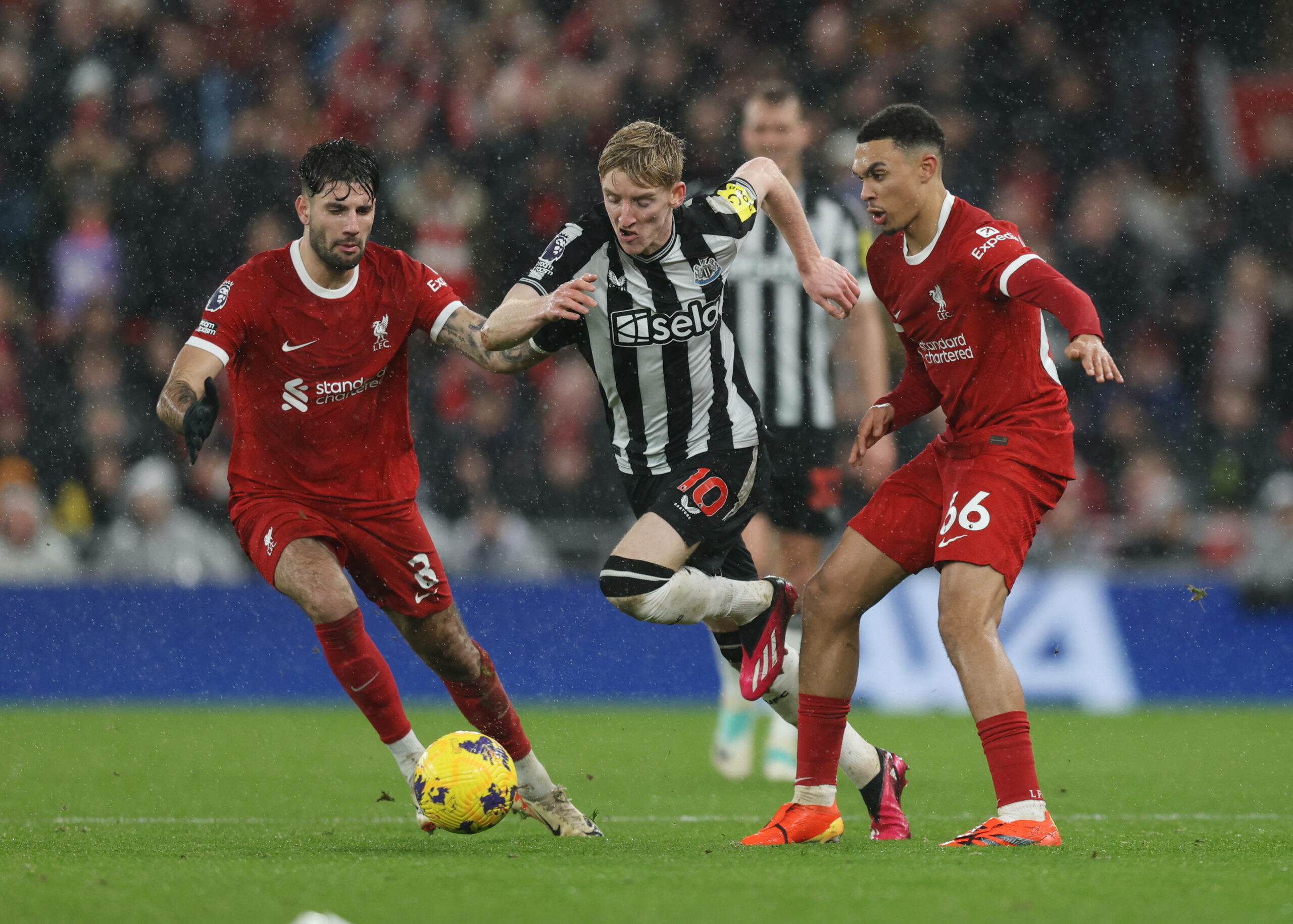Anthony Gordon’s Missed Opportunity: Liverpool’s Cautious Approach and Newcastle’s Financial Dilemma
In the whirlwind world of football transfers, the tale of Anthony Gordon’s potential move to Liverpool encapsulates the complexities and pressures of modern football finance and strategy. Originally reported by The Telegraph, the story reveals not just the ambitions of a player but also the financial imperatives that shape decisions behind the scenes.
Financial Constraints and Strategic Decisions
Newcastle United, like several Premier League clubs, found themselves scrutinised under the Profit and Sustainability regulations (PSR), needing to stay within a £105 million loss threshold over three years. This predicament seemed to be a driving force in the initial discussions between Liverpool and Newcastle. The stakes were high, with Newcastle potentially needing to sell Gordon to balance the books, sparking rumours of Liverpool’s interest.

Gordon, who had a standout 2023/24 season, proved his worth by featuring in 47 matches across all competitions, contributing 11 goals and 10 assists. His versatility and tactical fit within Liverpool’s system under coach Arne Slot made him an attractive prospect. Yet, despite these qualities, Liverpool’s response was described as “lukewarm,” with no substantial bid forthcoming. As Luke Edwards of The Telegraph notes, “There were conversations with Liverpool about Gordon, whose agent was pushing hard for him to get the move to his boyhood club right up until the June 30 deadline.”
Missed Opportunities and Player Aspirations
The narrative around Gordon is as much about missed opportunities as it is about unmet aspirations. Described as eager for the move, Gordon discussed his hopes with teammates while on England duty at the Euros. This personal element adds a poignant layer to the saga, illustrating the often-overlooked human aspect of football transfers.

Liverpool’s tentative interest and the failure to submit a bid reflect a cautious approach possibly dictated by their own strategic and financial assessments. The reported low figures discussed would not have significantly impacted Newcastle’s PSR deficit, hinting at Liverpool’s reluctance to commit major resources for this transfer.
Implications of the Transfer Window Closure
With the PSR deadline now passed, the immediate future sees Gordon remaining at Newcastle. This decision, or lack thereof, might affect team dynamics and the player’s morale, especially given the public nature of the discussions surrounding his potential transfer.
Additionally, the broader implications for both clubs cannot be understated. For Newcastle, retaining a key player without alleviating their financial pressure poses challenges for future dealings. For Liverpool, their decision not to pursue Gordon aggressively might be seen as a missed opportunity to strengthen their squad with a versatile, high-performing player.
Reflections on Transfer Strategies
This episode serves as a case study in the delicate balancing act clubs must perform in the transfer market. Financial fair play regulations, strategic club needs, and player aspirations all converge in high-stakes negotiations that can define seasons and careers.
The Anthony Gordon saga may have ended quietly for now, but it remains a vivid illustration of the complex interplay between financial pragmatism and sporting ambition in football today. As clubs navigate these turbulent waters, the decisions made—or not made—during such transfer windows will continue to resonate well beyond the immediate season.
In conclusion, while Gordon remains a Newcastle player, the echoes of what might have been continue to reverberate through the halls of both St. James’ Park and Anfield. Only time will tell if this was a prudent pause by Liverpool or a missed strategic opportunity.




